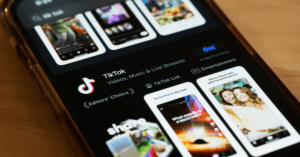The FBI and the Cybersecurity and Infrastructure Security Agency (CISA) have issued a stark warning to iPhone and Android users, urging them to adopt secure, encrypted communication methods amid an alarming rise in Chinese cyberattacks targeting U.S. networks. According to federal authorities, these network breaches are far more extensive than previously understood, raising serious concerns about the vulnerability of critical communication systems.
Chinese Cyberattacks: A Growing Threat
Recent cyberattacks attributed to a group linked to China’s Ministry of Public Security have exposed significant weaknesses in the U.S.’s communication infrastructure. These breaches, referred to as the Salt Typhoon attacks, have primarily targeted individuals involved in government and political activities, intercepting sensitive calls and messages.
Authorities stress that without robust end-to-end encryption, communications remain highly vulnerable to interception, making encrypted messaging and calls a crucial defense mechanism. This warning comes as the scope of Chinese cyber espionage appears broader and more sophisticated than previously acknowledged.
The Call for Encrypted Communications
Both the FBI and CISA are urging Americans to prioritize security features like end-to-end encryption when using messaging and calling apps. Encryption ensures that only the intended recipients can access the content of messages or calls, preventing potential eavesdropping by malicious actors.
CISA’s Jeff Greene emphasized this during a recent statement, saying, “We strongly encourage Americans to adopt encrypted communication tools. This is not just about short-term fixes—it’s about ensuring the long-term security of our networks.”
What You Need to Do Now
To safeguard against potential cyber threats, the FBI recommends that smartphone users take the following steps:
- Use a Secure Smartphone: Ensure your phone receives regular operating system updates. Updates often patch vulnerabilities that hackers could exploit.
- Choose Encrypted Apps: Opt for messaging and calling apps that offer end-to-end encryption, such as Signal, WhatsApp, or iMessage.
- Enable Multi-Factor Authentication (MFA): Use phishing-resistant MFA for email, social media, and other online accounts.
- Be Wary of SMS and Basic RCS Texting: These formats lack adequate security features and should not be used for private or sensitive communications.
These recommendations highlight the critical importance of staying informed and proactive in protecting personal data and communications.
A Wake-Up Call for Network Security
The latest warnings come alongside a broader effort to evaluate and strengthen the U.S.’s cyber defenses. An alert jointly issued by the FBI, CISA, and the National Security Agency (NSA) highlighted the dangers posed by unencrypted communication methods, particularly in light of recent breaches.
The vulnerabilities in cross-platform Rich Communication Services (RCS) messaging have been under scrutiny. While companies like Google and Apple promote encryption for their platforms, inconsistencies in its implementation leave gaps that hackers can exploit.
The Political Storm Surrounding Cybersecurity
These revelations have sparked political debates about the security of U.S. critical infrastructure. On Wednesday, a classified briefing was held for senators to address the scope of Chinese hacking efforts.
Meanwhile, Federal Communications Commission (FCC) Chairwoman Jessica Rosenworcel has proposed requiring communication service providers to submit annual certifications attesting to their security measures. This move aims to hold providers accountable for safeguarding their networks against cyber threats.
Europe’s Controversial Stance on Encryption
Interestingly, Europe is also grappling with encryption policies. European lawmakers are debating proposals that would require tech companies to monitor and control content on their platforms to combat child sexual abuse. Privacy advocates have criticized these measures, arguing that they could undermine encryption and jeopardize user privacy.
This debate underscores the ongoing global struggle to balance security, privacy, and regulatory oversight in the digital age.
The Importance of Responsible Encryption
The FBI has stressed the need for “responsible encryption,” which involves protecting user data while allowing lawful access under specific conditions. However, achieving this balance remains contentious.
Privacy experts warn that weakening encryption to allow access for law enforcement could also create vulnerabilities for malicious actors to exploit. This ongoing debate has yet to yield a clear path forward, but it remains a critical issue in the broader cybersecurity landscape.
What This Means for Everyday Users
While these developments may seem distant to the average user, they highlight the importance of making informed decisions about personal cybersecurity. ESET cybersecurity expert Jake Moore advises treating public messaging platforms with caution, recommending that sensitive data not be shared through unsecured channels.
Key Takeaways:
- FBI’s Warning: iPhone and Android users are urged to adopt encrypted communication methods to counter the growing threat of Chinese cyberattacks.
- Immediate Actions: Use secure apps, enable MFA, and stay updated on the latest security recommendations.
- Broader Implications: These warnings have sparked discussions about encryption, network security, and regulatory measures both in the U.S. and abroad.




